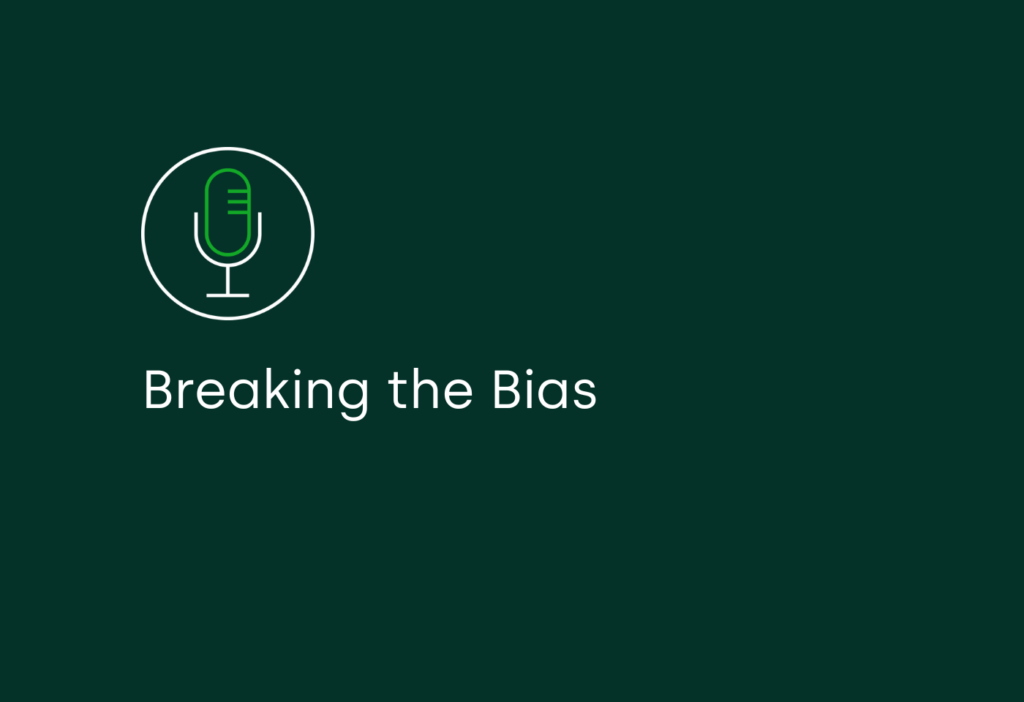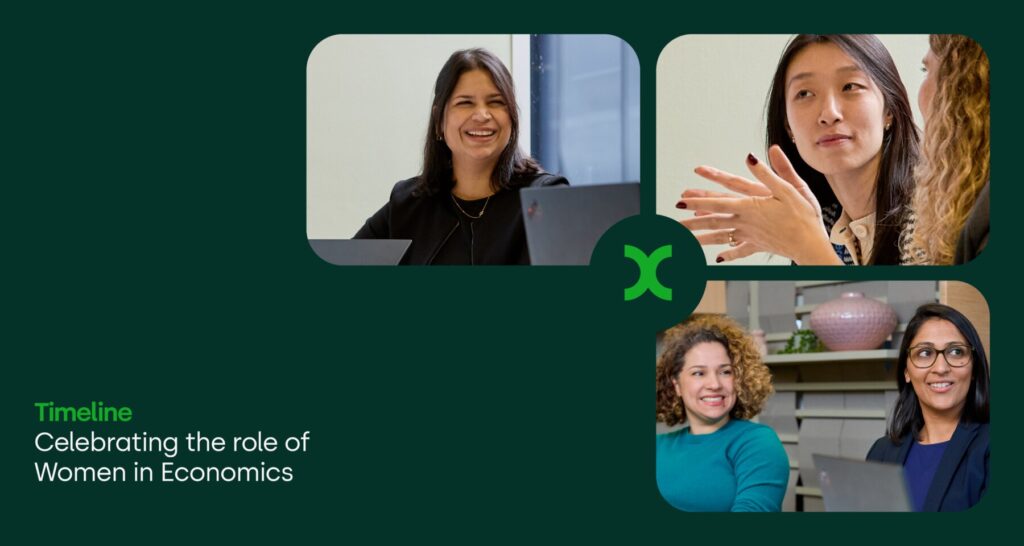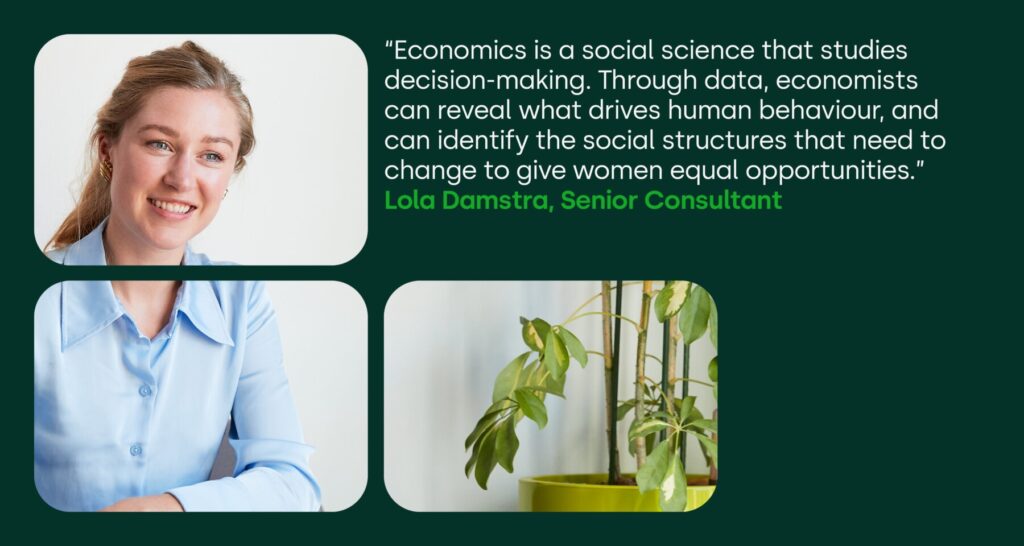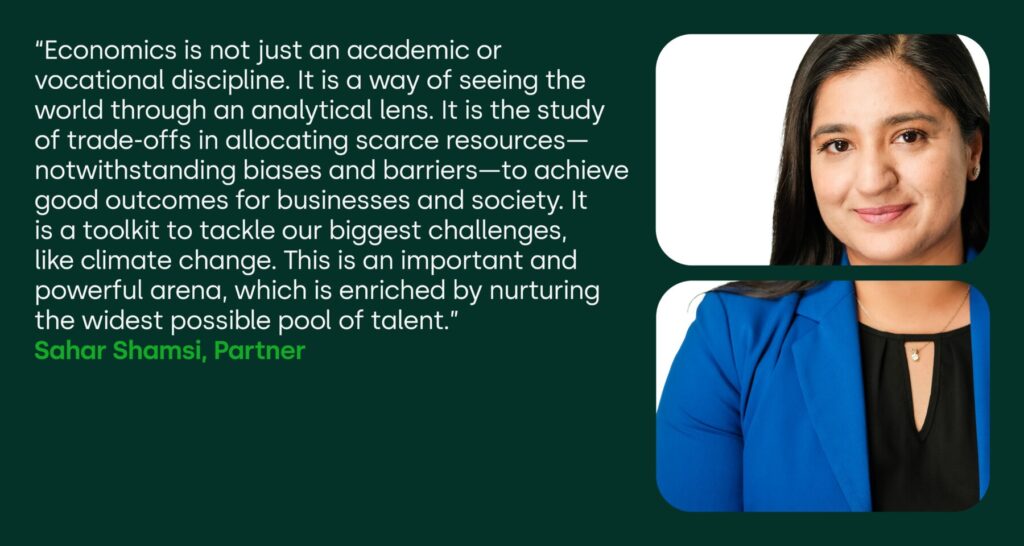Women in Economics
Women have a long and prestigious history in economics, pioneering the field and solving some of society’s greatest problems.
Economics and finance also offers insights into many of the challenges that women face and provides frameworks to navigate, understand and address issues such as the lack of parity in pay, access to education, career progression and caring responsibilities. Together, we can be part of the change needed in all industries, workplaces and at home.
In 2021, Helen Ralston-Smith, Partner, and Shreya Gupta, Principal, offered their thoughts on how economics can help us to shape more inclusive policy and recognise the contribution that women as a whole make to society.
Women in Economics past podcasts:













